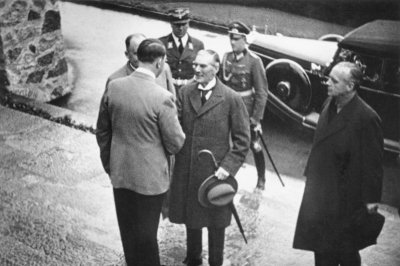Topic: William Paley
William Paley (July 1743 – 25 May 1805) was a British Christian apologist, philosopher, and utilitarian. He is best known for his exposition of the teleological argument for the existence of God in his work Natural Theology, which made use of the watchmaker analogy (also see natural theology).
Born in Peterborough, England, Paley was educated at Giggleswick School, of which his father was headmaster, and at Christ's College, Cambridge. He graduated in 1763 as senior wrangler, became fellow in 1766, and in 1768 tutor of his college. He lectured on Samuel Clarke, Joseph Butler and John Locke in his systematic course on moral philosophy, which subsequently formed the basis of his Principles of Moral and Political Philosophy; and on the New Testament, his own annotated copy of which is in the British Library. The subscription controversy was then agitating the university, and Paley published an anonymous defence of a pamphlet in which the Master of Peterhouse and Bishop of Carlisle Edmund Law had advocated the retrenchment and simplification of the Thirty-nine Articles; he did not, however, sign the petition (called the "Feathers Tavern" petition, from being drawn up at a meeting at the Feathers Tavern) for a relaxation of the terms of subscription. He was also a strong supporter of the American colonies during the revolutionary war, partly because he thought it would lead to the destruction of slavery.
In 1776 Paley was presented to the rectory of Musgrave in Westmorland, which was exchanged soon after for Appleby. He was subsequently made vicar of Dalston in 1780, near the bishop's palace at Rose Castle. In 1782 he became the Archdeacon of Carlisle. Paley was intimate with the Law family throughout his life, and the Bishop and his son John Law (who was later an Irish bishop) were instrumental during the decade after he left Cambridge in pressing him to publish his revised lectures and in negotiating with the publisher. In 1782 Edmund Law, otherwise the mildest of men, was most particular that Paley should add a book on political philosophy to the moral philosophy, which Paley was reluctant to write. The book was published in 1785 under the title of The Principles of Moral and Political Philosophy, and was made a part of the examinations at the University of Cambridge the next year. It passed through fifteen editions in the author's lifetime. Paley strenuously supported the abolition of the slave trade, and his attack on slavery in the book was instrumental in drawing greater public attention to the evil trade. In 1789 a speech he gave on the subject in Carlisle was published.
It uses material from the Wikipedia article "William Paley."





